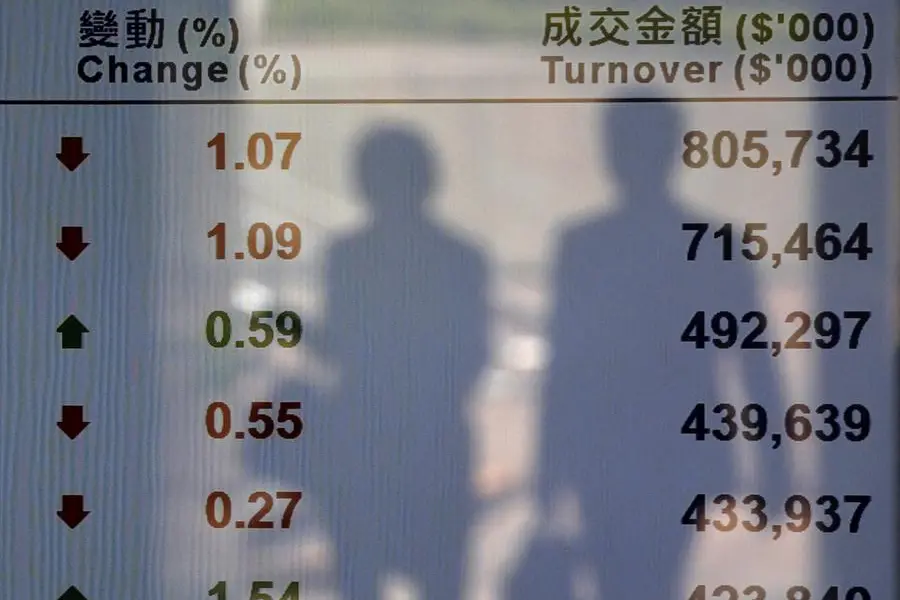PHOTO
Emerging market shares rose on Wednesday after six days of losses, helped by a recovery in the Hong Kong market, while currencies were flat as the U.S. dollar eased.
Hong Kong-listed tech stocks gained 1.3%, tracking the rebound in U.S. futures on buybacks and earnings beating estimates, helping the benchmark Hang Seng index snap a three-day losing streak.
China's blue-chip CSI 300 Index, however, closed 0.1% lower and extended losses for a sixth consecutive session on persistent worries about economic recovery in the world's second largest economy.
"We're still waiting for that next wave of stimulus from policymakers which we don't think we're going to see until late Q2 when the economic recovery starts to slow down," said Simon Harvey, head of FX analysis at Monex Europe, London.
China's yuan also rebounded from a more than six-week low, after the country's cabinet issued a plan to stabilise its vital trade sector.
Overall, the MSCI's index for emerging market stocks added 0.2% by 0855 GMT, after falling to an over one-month low earlier in the day.
Capping gains, South Korean shares posted their longest falling streak so far this year, as global banking worries re-emerged and offset earnings boost.
Emerging market currencies were flat against a weakening dollar that benefited on Tuesday from a short-term flight to safety amid fresh banking concerns.
South Africa's rand rose 0.4% against the dollar, ahead of the release of producer inflation figures later in the day.
In the central and eastern European markets, Hungary's forint gained 0.6% against the euro a day after the National Bank of Hungary delivered a cut at the top end of its interest rate corridor.
The Polish zloty inched up 0.1% against the euro, hovering near 10-month highs hit on Tuesday.
"Here it's all about what the next steps are for monetary policy and we do see the National Bank of Poland are likely to remain at the current level of interest rates for longer than those in Czech Republic and in Hungary," said Harvey.
"That should provide some support for the zloty performance against the rest of the CEE, especially as it underperformed in recent months."
Data showed unemployment rate in Poland fell to 5.4% in March, compared with 5.5% in February.
Russia's rouble and the Turkish lira were flat against the greenback.
In Latin America, Argentina's Economy Minister Sergio Massa pledged on Tuesday to unleash "all tools" to counter a slide in the peso, as the currency hit a record low of 495 against the dollar in popular black markets.
Sri Lanka is trying to reduce its overall debt by $17 billion through restructuring, the country's president told the parliament as he sought support of opposition parties for a $3 billion International Monetary Fund programme.
(Reporting by Bansari Mayur Kamdar in Bengaluru; Editing by Rashmi Aich)




















